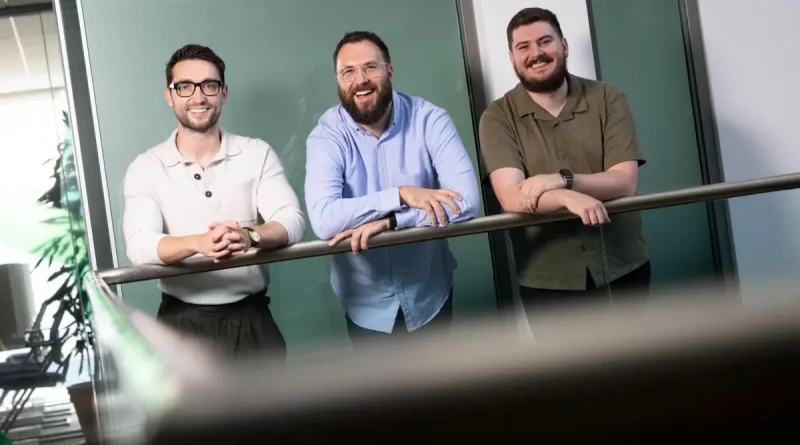Battlefield Veteran DevAlly Raises €2M to Support Companies Navigating Europe’s New Accessibility Law
A multitude of businesses providing goods and services to the EU’s 450 million consumers are now mandated to comply with newly instated accessibility standards that took effect in June. Similar to the previous GDPR, this recent legislation has driven organizations to swiftly revamp their websites, e-commerce platforms, and banking apps. However, despite parallels in the U.S. regulations, many companies still face substantial challenges ahead.
“One surprise for us was that even large corporations reached out just two weeks before [the deadline], saying, ‘We were not aware of this,’” noted Irish entrepreneur Cormac Chisholm.
Chisholm’s company, DevAlly, stands at the forefront of leveraging technology to make it easier for businesses to pinpoint accessibility issues. It also assists in complying with regulations like the European Accessibility Act (EAA), which enforces heavy penalties for new products and services that don’t meet the required standards. (Existing products have a grace period to comply until 2030.)
Launched in 2024, DevAlly identifies accessibility barriers, such as corporate website videos that lack captions. It tracks customer-reported issues, aids companies in formulating solutions, and produces accessibility reports.
Although human consultants can conduct audits, Chisholm, the CEO of DevAlly, asserts that such methods do not scale efficiently to meet demand or adapt to the evolving nature of digital product development. DevAlly employs accessibility specialists, but it also leverages AI and accessibility large language models (LLMs) to automate testing and issue tracking. Chisholm believes this strategy integrates accessibility seamlessly into the product development lifecycle.
This technology-focused approach mirrors the success of cybersecurity compliance firm Vanta, which is currently valued at $2.45 billion.
The favorable regulatory landscape and growing awareness around accessibility allowed DevAlly to secure €2 million in pre-seed funding (approximately $2.3 million), as revealed exclusively by TechCrunch.
Techcrunch event
San Francisco
|
October 27-29, 2025
With this fresh funding, the team plans to expand from 5 to 15 employees by the end of the year—mainly in Dublin, where they participated in the NDRC accelerator program led by Dogpatch Labs for the state agency Enterprise Ireland.
NDRC and Enterprise Ireland took part in the funding round, which was spearheaded by the Belgian firm Miles Ahead Capital, alongside contributions from European angel investors. According to DevAlly’s founders, this was largely due to their participation in the tech conference Slush, where they finished in the top 3 of the startup competition and connected with their future lead investor.
“The traditional route in Ireland is to partner with a local VC, but we chose a European one. We’re particularly excited about the opportunities this investor offers,” Chisholm expressed.
DevAlly aims to utilize support from Miles Ahead to kick off its U.S. operations, beginning with sales in San Francisco. The city has been pivotal in establishing relationships with accessibility leaders at major B2B software firms following DevAlly’s presence at TechCrunch Disrupt’s Startup Battlefield 2024. “At present, a significant portion of our customers are based on the West Coast,” co-founder and Chief Revenue Officer Patrick Guiney shared with TechCrunch.
The startup has made headway in Europe due to the enactment of the EAA. Other companies, such as Barcelona-based QualiBooth, have also evaluated the state of e-commerce accessibility in Europe, as retail is a primary focus of the EAA. Nevertheless, both startups are eyeing prospects in the U.S., where DevAlly believes procurement will be a key demand driver.
With estimates suggesting that disabled consumers and their families hold $8 trillion a year in disposable income, Chisholm firmly asserts, “good design means accessible design.” One in five individuals lives with a disability, and obstacles can also arise situationally—such as excessive glare making it hard to read a screen outdoors or holding a baby and being unable to manipulate control buttons. “Our goal is to strive for universal design whenever feasible,” he stated.
Potential measures companies can adopt to enhance accessibility include supporting screen readers and using higher contrast and gradients for color-blind individuals. However, a recent analysis by UX/UI design agency Tenscope revealed that 94% of the top 1,000 U.S. websites fail to meet basic accessibility standards.
The travel industry has exhibited the lowest performance, preventing many users from accomplishing simple tasks like filling out contact forms, creating accounts, and making online purchases. Even before the EAA, the Spanish airline Vueling faced penalties for not ensuring its website was accessible.
With the EU-wide EAA enforcing various jurisdictional regulations, each with unique penalties, large tech companies operating across countries may find themselves needing assistance. “That’s why we aim to position ourselves as a bridge to Europe for these U.S. companies,” Chisholm remarked.
Should they seek help, it would benefit both DevAlly and its investors; but it could also have a positive impact on all users, as Chisholm pointed out. “The improvements stemming from accessibility—like closed captions on Netflix—lead to significant advancements in technology usage for everyone. It represents a higher caliber of design.”



